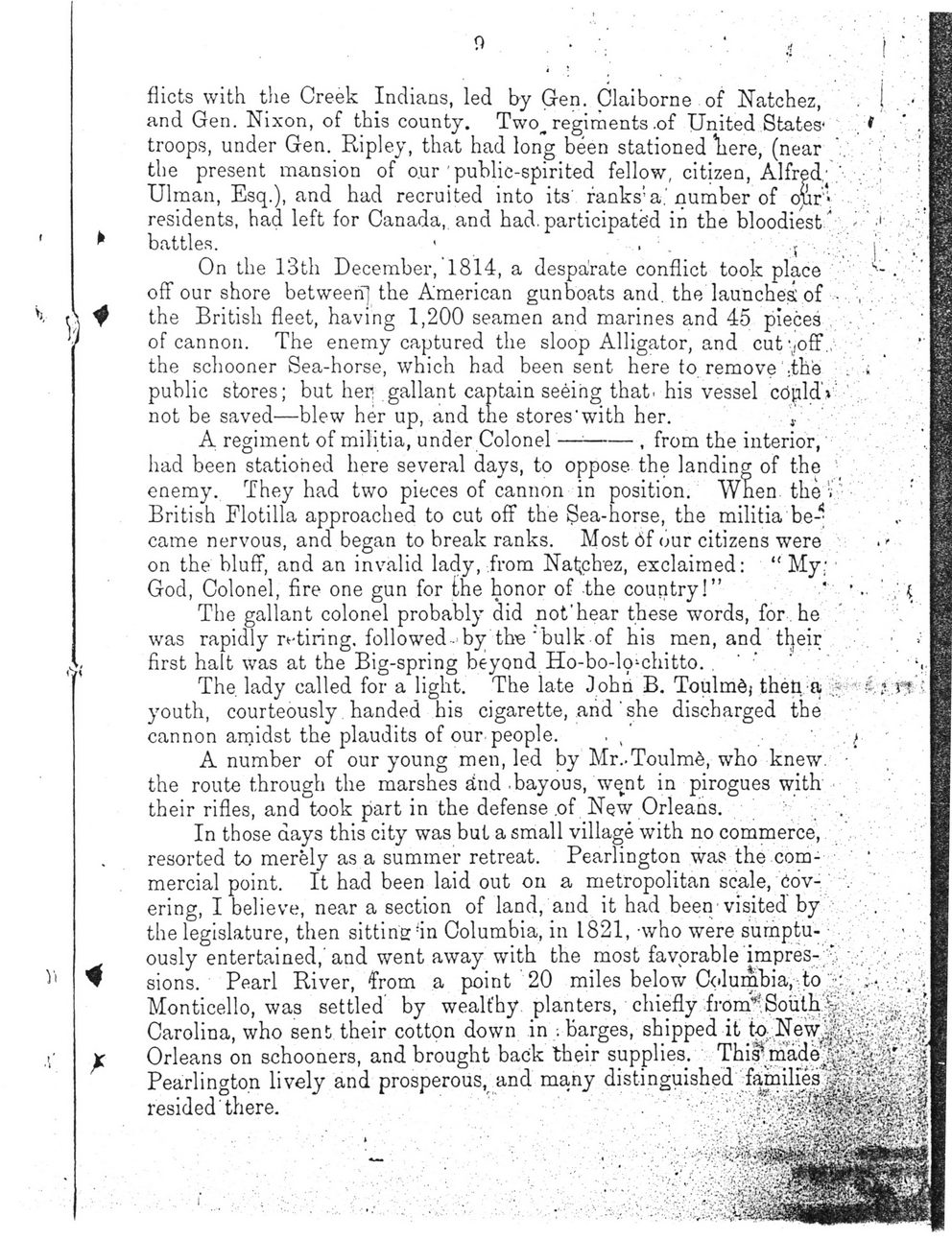This text was obtained via automated optical character recognition.
It has not been edited and may therefore contain several errors.
flicts with the Creek Indians, led by Gen. Claiborne of Natchez, and Gen. Nixon, of this county. Two^ regiments .of United States-troops, under Gen. Ripley, that had long been stationed liere, (near the present mansion of o.ur ' public-spirited fellow, citizen, Alfred: Ulman, Esq.), and had recruited into its' ranks??a.'number of o)ar'' residents, had left for Canada, and had. participated in the bloodiest battles. < , On the 13th December, 1814, a despa'rate conflict took place off our shore between! the American gunboats and. the launches: of the British fleet, having 1,200 seamen and marines and 45 pieces of cannon. The enemy captured the sloop Alligator, and cut^off. the schooner Sea-horse, which had been sent here to remove ?.the public stores; but her! gallant captain seeing that, his vessel cdpld'? not be saved?blew her up, and the stores'with her. f ' A regiment of militia, under Colonel ?1--------, from the interior, had been stationed here several days, to oppose, the landing of the enemy. They had two pieces of cannon in position. When the British Flotilla approached to cut off the Sea-horse, the militia be-*; came nervous, and began to break ranks. Most 6f our citizens were on the bluff, and an invalid lady, from Natchez, exclaimed: ? My; God, Colonel, fire one gun for the honor of the country!? The gallant colonel probably did not?hear these words, for he was rapidly retiring, followed-*by the 'bulk of his men, and their first halt was at the Big-spring beyond Ho-bo-l^chitto. . The. lady called for a light. The late John B. ToulmSj theft a youth, courteously handed his cigarette, and ' she discharged the cannon amidst the plaudits of our people. A number of our young men, led by Mr..Toulm?, who knew, the route through the marshes aind .bayous, went in pirogues with their rifles, and took part in the defense .of New Orleans. In those days this city was but a small village with no commerce, resorted to merely as a summer retreat. Pearlington was the commercial point. It had been laid out on a metropolitan scale, Covering, I believe, near a section of land, and it had been visited by the legislature, then sitting ;in Columbia, in 1821, -who were sumptuously entertained,'and went away with the most favorable impressions. Pearl River, 'from a point 20 miles below Columbia, to Monticello, was settled by wealthy planters, chiefly .from*-South; Carolina, who sent their cotton down in ; barges, shipped it to.New^ Orleans on schooners, and brought back their supplies. Thi^.madeJ Pearlington lively and prosperous^ and many distinguished -f^ilfesj resided there. ?

Claiborne, J.F.H Claiborne-J.F.H-080